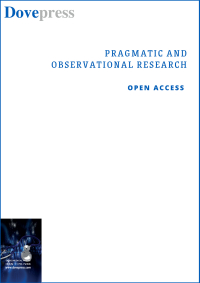奥氮平单药治疗或其他非典型抗精神病单药治疗急性精神分裂症患者的缓解、反应和复发率:12个月的前瞻性观察研究
IF 2.3
Q2 MEDICINE, GENERAL & INTERNAL
引用次数: 32
摘要
目的比较日本精神分裂症患者在常规临床护理中使用奥氮平或其他抗精神病药物治疗的抗精神病药物反应、缓解和复发率。患者和方法本研究分析了一项为期12个月的前瞻性非介入性研究,检查了1089名精神分裂症住院和门诊患者接受抗精神病药物单一治疗的结果。所有的治疗决定,包括药物的选择,都由主治医生自行决定。比较奥氮平单药治疗(OLZ)和其他抗精神病单药治疗(OAN)以及OLZ和其他非典型抗精神病单药治疗(OAT)之间的治疗反应率、复发率和6个月持续缓解率。使用重复测量逻辑回归检查治疗反应和缓解的访视比较。倾向得分用于控制组间潜在基线差异。结果OLZ患者有效率较高,复发率持续较低,但差异无统计学意义。OLZ患者的6个月持续缓解率显著高于OAN患者(P=0.032), OLZ患者显著高于OAT患者(P=0.041)。通过对OLZ和OAN比较的探索性分析发现,门诊患者OLZ和OAN的持续缓解率相似(OLZ: 22.2%, OAN: 22.8%),而住院患者OLZ的持续缓解率显著高于住院患者OAN (OLZ: 17.1%, OAN: 6.6%,优势比[95%置信区间]=3.54[2.00-6.25])。结论在日本常规护理中,奥氮平治疗精神分裂症急性症状的疗效和复发率无显著差异;然而,奥氮平治疗的持续缓解率明显高于其他抗精神病药物治疗。在住院情况下,患者往往更严重,难以管理,奥氮平治疗可能导致比其他抗精神病药物更高的持续缓解率。本文章由计算机程序翻译,如有差异,请以英文原文为准。
Remission, response, and relapse rates in patients with acute schizophrenia treated with olanzapine monotherapy or other atypical antipsychotic monotherapy: 12-month prospective observational study
Purpose To compare the rates of antipsychotic response, remission, and relapse in patients with schizophrenia treated with olanzapine or other antipsychotics in usual clinical care in Japan. Patients and methods This analysis of a 12-month, prospective, noninterventional study examined outcomes for 1,089 inpatients and outpatients with schizophrenia who initiated antipsychotic monotherapy. All treatment decisions, including medication choice, were left to the discretion of the treating physician. The rates of treatment response, relapse, and 6-month sustained remission were compared between olanzapine monotherapy (OLZ) and other anti-psychotic monotherapy (OAN), and between OLZ and other atypical antipsychotic monotherapy (OAT). Visit-wise comparisons of treatment response and remission were examined using repeated-measures logistic regressions. Propensity scores were used to control for potential baseline differences between groups. Results Response rates were higher for OLZ patients and relapse rates were consistently lower for OLZ patients, however the differences were not statistically significant. Rates of 6-month sustained remission were significantly higher for OLZ than OAN patients (P=0.032) and for OLZ than OAT patients (P=0.041). An exploratory analysis of OLZ and OAN comparison found outpatients treated with OLZ or OAN had similar sustained remission rates (OLZ: 22.2%, OAN: 22.8%), while inpatients treated with OLZ had significantly higher sustained remission rates than inpatients treated with OAN (OLZ: 17.1%, OAN: 6.6%, odds ratio [95% confidence interval] =3.54 [2.00–6.25]). Conclusion In usual care in Japan, treating the acute symptoms of schizophrenia with olanzapine was not found to be significantly different for response and relapse rates; however, treatment with olanzapine was found to have significantly greater sustained remission rates than treatment with other antipsychotics. In the inpatient setting, where patients tend to be more severe and difficult to manage, olanzapine treatment may lead to higher sustained remission rates than other antipsychotics.
求助全文
通过发布文献求助,成功后即可免费获取论文全文。
去求助
来源期刊

Pragmatic and Observational Research
MEDICINE, GENERAL & INTERNAL-
自引率
0.00%
发文量
11
期刊介绍:
Pragmatic and Observational Research is an international, peer-reviewed, open-access journal that publishes data from studies designed to closely reflect medical interventions in real-world clinical practice, providing insights beyond classical randomized controlled trials (RCTs). While RCTs maximize internal validity for cause-and-effect relationships, they often represent only specific patient groups. This journal aims to complement such studies by providing data that better mirrors real-world patients and the usage of medicines, thus informing guidelines and enhancing the applicability of research findings across diverse patient populations encountered in everyday clinical practice.
 求助内容:
求助内容: 应助结果提醒方式:
应助结果提醒方式:


